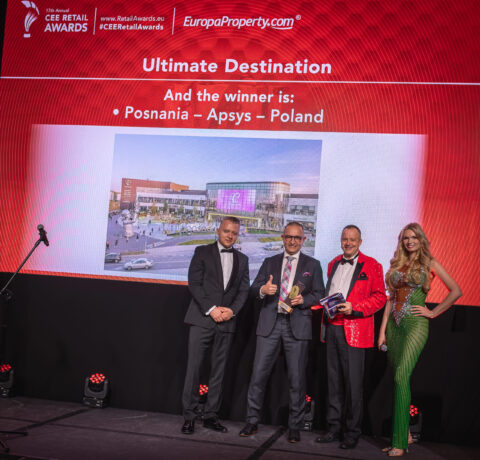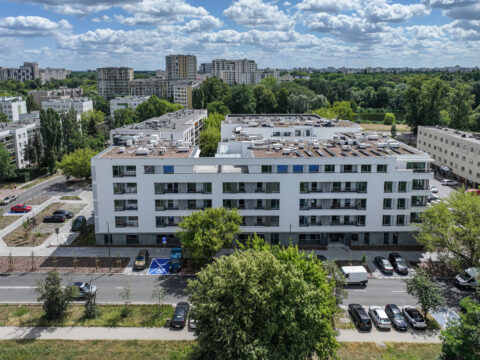INDICATORS THAT BUILD TRUST. HOW CAN SHOPPING CENTRE MANAGERS SUPPORT TENANTS AND OWNERS?

INDICATORS THAT BUILD TRUST. HOW CAN SHOPPING CENTRE MANAGERS SUPPORT TENANTS AND OWNERS?
Shopping centres bring together a variety of functions, needs, and interests—those of their owners, tenants, and visitors alike. The manager’s role is to effectively reconcile these expectations, build relationships, and create a space that functions like a well-oiled organism: multifunctional, dynamic, and open to change. Equally important, the manager must continually enhance the property’s value. And that cannot be achieved without a carefully thought-out strategy and strong, partnership-based relationships with stakeholders.
In the face of growing competition, market polarization, and ever-higher customer expectations, a shopping centre must be more than just operational infrastructure; it must also be a place that engages and stands out. Good asset management means much more than operational efficiency. It’s above all the ability to forge collaborative partnerships and jointly pursue clearly defined goals. Are managers ready for this? Can they go beyond the standard scope of service delivery and become full-fledged partners in the growth of local businesses? And finally, how can we measure the quality of this collaboration so that it isn’t merely declarative? One tool that helps answer these questions is systematic stakeholder satisfaction surveys—of both tenants and asset owners.
What Do Tenants Expect from Their Manager?
For tenants’ day-to-day operations, it’s not only the location of the store or footfall in the mall that matters. Equally important are the less obvious aspects of centre operations, such as the quality of cooperation with the manager, the responsiveness of service providers, the level of communication, and access to sales-support activities. In practice, these factors often determine whether a tenant feels part of a larger whole or is left to fend for themselves. It’s no coincidence that many brands choose to develop in shopping centres, which dominate the Polish retail landscape—accounting for 80 percent of all modern retail space in Poland [1] and serve as business platforms offering not only customer access but also operational, marketing, and infrastructural support.
According to data from Grace Hill—a firm specializing in research and solutions for commercial real-estate management—an increase of just one percentage point in tenant satisfaction can lead to an 8.36 percent higher willingness to renew a lease, an 11.52 percent greater likelihood of referring the property to fellow tenants, and a 15.8 percent lower probability of leaving the centre. That’s why it’s so important to listen regularly to tenants’ voices, ask about their needs, and respond to signals from daily cooperation. Without understanding tenants’ real perceptions, managers find it difficult to make informed decisions on where to focus efforts, resources, and investments.
Data, Not Declarations. How to Measure Management Quality?
For years, Apsys Polska has conducted satisfaction surveys among both tenants and owners of its managed assets, evaluating every aspect of cooperation—from substantive matters such as management, marketing, and leasing, to qualitative factors like openness to needs and expectations and contact with the management team. This is not only a form of operational evaluation but also a way to identify weaknesses and implement improvements.
– “Seeing year after year an increasing number of our stakeholders participate in these surveys gives us confidence that this dialogue brings real changes and positively impacts cooperation quality. The results remain consistently high and confirm that regardless of market, economic, or geopolitical conditions, we maintain high satisfaction among both owners of managed assets and retail tenants. This proves that open communication is the foundation of good partnership. Thanks to these surveys, we not only better understand our partners’ needs but, importantly, can respond to them. After each survey cycle, we draw conclusions and implement changes that translate into better experiences for all centre users. Such flexibility and readiness to act is for us a constant process of refining our services, programs, and initiatives aimed at these two stakeholder groups,” – says Justyna Kur, Vice President and Director of Asset Management at Apsys Polska.
Tenant Satisfaction Is Rising
In 2024, over 1,400 tenant representatives completed the survey—a 15 percent increase compared to the previous year. The questions were designed based on actual needs and experiences reported by tenants. Marketing activities were also assessed. For tenants, key aspects are daily centre operations—cleanliness, efficiency of technical services, and a sense of security. These directly impact business comfort and customer experience. These areas received very high ratings in the survey, confirming that Apsys Polska’s partnership-and-engagement management model effectively meets tenants’ needs. Marketing efforts were also rated highly, as for many tenants they are crucial support in attracting customers, strengthening brand awareness, and boosting sales. An effective, proactive manager role in this area builds the entire centre’s competitive advantage to the benefit of every store or service point.
– “In a shopping centre, different entities come together, but we all share one goal—to create a place that meets customer needs and delivers top-quality service. That’s why building a sense of community and providing daily support for our partners’ challenges is so important,” – says Ewa Flader, Property Regional Director at Apsys Polska. – “Scores in individual categories confirm that we consistently maintain and develop the best management standards, which not only enhances tenants’ positive experiences but also builds their trust in our centres. Our goal is to continually raise the bar on cooperation quality, to better support our tenants in their daily operations and business objectives.”
Owners’ Evaluation of Managed Centres
Effective shopping-centre management isn’t just daily logistics; it’s primarily a long-term approach to building property value. For owners, the most important outcomes are both financial results and the development of a location’s potential. From their perspective, the management team’s competence, strategic approach, and dedication to enhancing the centre’s appeal are decisive for investment success. The manager’s role is the ability to unlock each location’s potential and operational efficiency that yields steady income, financial security for the owner, and long-term asset effectiveness.
Owners highlight not only strategic effects but also the operational quality of collaboration with the Apsys team. They rate highly, among other things, responsiveness and efficiency of actions, a personalized approach to their needs, and willingness to support problem-solving. They also appreciate communication clarity and regularity. Overall scores show that Apsys enjoys recognition and trust among its clients, and the Asset Management Department at Apsys Headquarters is regarded as one of the organization’s strongest links, significantly contributing to the operational success of managed centres.
– “High collaboration ratings from centre owners confirm that our approach—based on professionalism, individualized support, and openness to dialogue—delivers real results. We continuously assess and optimize our actions because our priority is building long-term, partnership-based relationships with our clients—the centre owners we manage. We’re proud that for consecutive years, our business partners rate us so highly. These results are not only proof of trust but also a valuable guide for further developing services, consistently raising management standards, and building the value of managed properties. This approach not only strengthens relationships with our partners but also contributes to enhanced operational and financial performance of the centres we manage,” emphasizes Justyna Kur, Vice President and Director of Asset Management at Apsys Polska.
[1] https://prch.org.pl/wp-content/uploads/2024/10/PRCH_H1_2024_final.pdf





























